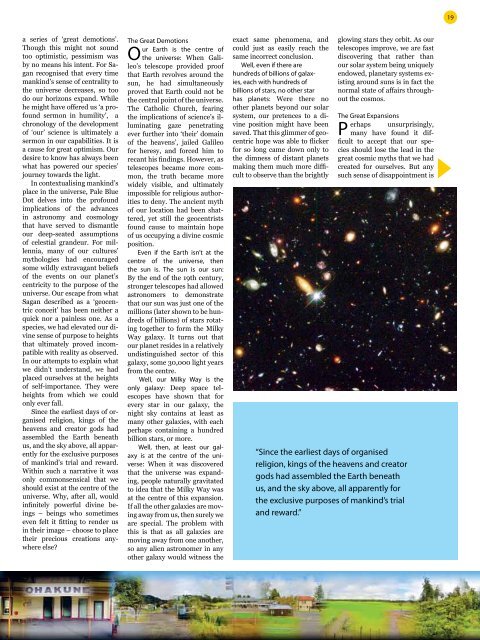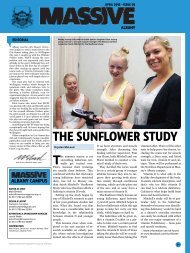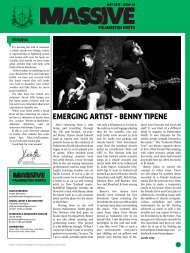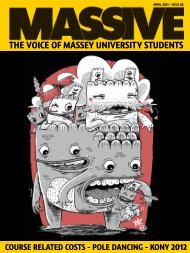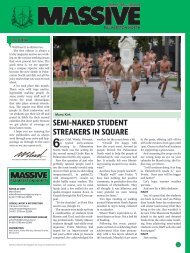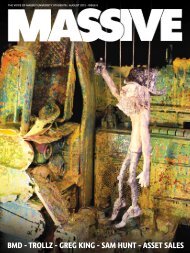You also want an ePaper? Increase the reach of your titles
YUMPU automatically turns print PDFs into web optimized ePapers that Google loves.
19a series of ‘great demotions’.Though this might not soundtoo optimistic, pessimism wasby no means his intent. For Saganrecognised that every timemankind’s sense of centrality tothe universe decreases, so toodo our horizons expand. Whilehe might have offered us ‘a profoundsermon in humility’, achronology of the developmentof ‘our’ science is ultimately asermon in our capabilities. It isa cause for great optimism. Ourdesire to know has always beenwhat has powered our species’journey towards the light.In contextualising mankind’splace in the universe, Pale BlueDot delves into the profoundimplications of the advancesin astronomy and cosmologythat have served to dismantleour deep-seated assumptionsof celestial grandeur. For millennia,many of our cultures’mythologies had encouragedsome wildly extravagant beliefsof the events on our planet’scentricity to the purpose of theuniverse. Our escape from whatSagan described as a ‘geocentricconceit’ has been neither aquick nor a painless one. As aspecies, we had elevated our divinesense of purpose to heightsthat ultimately proved incompatiblewith reality as observed.In our attempts to explain whatwe didn’t understand, we hadplaced ourselves at the heightsof self-importance. They wereheights from which we couldonly ever fall.Since the earliest days of organisedreligion, kings of theheavens and creator gods hadassembled the Earth beneathus, and the sky above, all apparentlyfor the exclusive purposesof mankind’s trial and reward.Within such a narrative it wasonly commonsensical that weshould exist at the centre of theuniverse. Why, after all, wouldinfinitely powerful divine beings– beings who sometimeseven felt it fitting to render usin their image – choose to placetheir precious creations anywhereelse?The Great DemotionsOur Earth is the centre ofthe universe: When Galileo’stelescope provided proofthat Earth revolves around thesun, he had simultaneouslyproved that Earth could not bethe central point of the universe.The Catholic Church, fearingthe implications of science’s illuminatinggaze penetratingever further into ‘their’ domainof the heavens’, jailed Galileofor heresy, and forced him torecant his findings. However, astelescopes became more common,the truth became morewidely visible, and ultimatelyimpossible for religious authoritiesto deny. The ancient mythof our location had been shattered,yet still the geocentristsfound cause to maintain hopeof us occupying a divine cosmicposition.Even if the Earth isn’t at thecentre of the universe, thenthe sun is. The sun is our sun:By the end of the 19th century,stronger telescopes had allowedastronomers to demonstratethat our sun was just one of themillions (later shown to be hundredsof billions) of stars rotatingtogether to form the MilkyWay galaxy. It turns out thatour planet resides in a relativelyundistinguished sector of thisgalaxy, some 30,000 light yearsfrom the centre.Well, our Milky Way is theonly galaxy: Deep space telescopeshave shown that forevery star in our galaxy, thenight sky contains at least asmany other galaxies, with eachperhaps containing a hundredbillion stars, or more.Well, then, at least our galaxyis at the centre of the universe:When it was discoveredthat the universe was expanding,people naturally gravitatedto idea that the Milky Way wasat the centre of this expansion.If all the other galaxies are movingaway from us, then surely weare special. The problem withthis is that as all galaxies aremoving away from one another,so any alien astronomer in anyother galaxy would witness theexact same phenomena, andcould just as easily reach thesame incorrect conclusion.Well, even if there arehundreds of billions of galaxies,each with hundreds ofbillions of stars, no other starhas planets: Were there noother planets beyond our solarsystem, our pretences to a divineposition might have beensaved. That this glimmer of geocentrichope was able to flickerfor so long came down only tothe dimness of distant planetsmaking them much more difficultto observe than the brightlyglowing stars they orbit. As ourtelescopes improve, we are fastdiscovering that rather thanour solar system being uniquelyendowed, planetary systems existingaround suns is in fact thenormal state of affairs throughoutthe cosmos.The Great ExpansionsPerhaps unsurprisingly,many have found it difficultto accept that our speciesshould lose the lead in thegreat cosmic myths that we hadcreated for ourselves. But anysuch sense of disappointment is“Since the earliest days of organisedreligion, kings of the heavens and creatorgods had assembled the Earth beneathus, and the sky above, all apparently forthe exclusive purposes of mankind’s trialand reward.”


